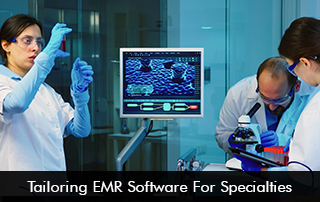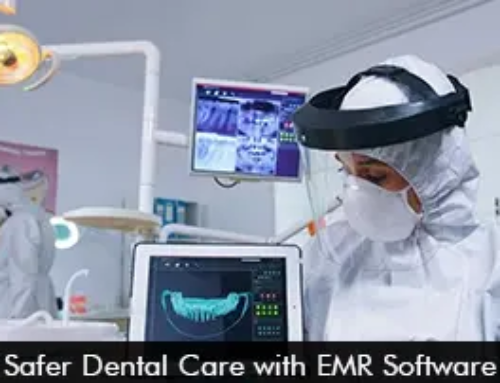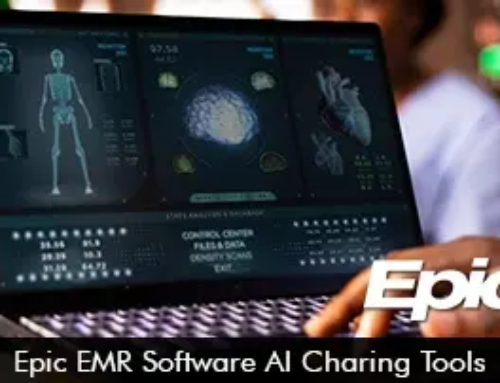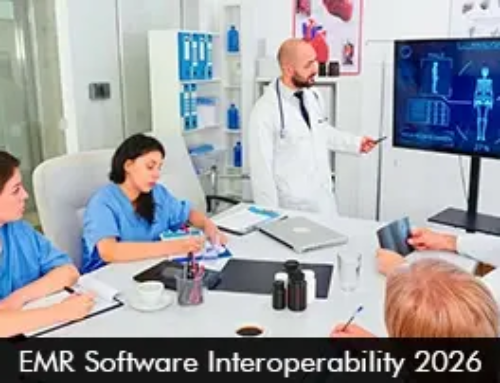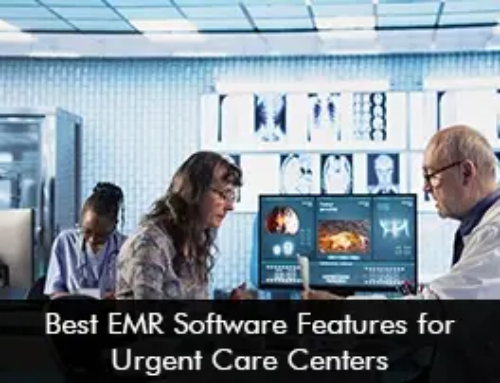EMR software has transformed the healthcare landscape, simplifying data handling, improving patient care, and streamlining administrative tasks. However, the “one-size-fits-all” approach for EMR software often falls short in addressing the unique needs of specialty fields, such as ophthalmology, cardiology, and orthopedics.
Tailoring Electronic Medical Records (EMR) software to specific specialties can enhance functionality, improve usability, and ultimately elevate patient care. This post dives into the significance of EMR customization for specialty practices, focusing on ease of use, efficiency, and the importance of streamlined processes.
The Importance of EMR Software in Specialty-Specific Fields
Specialized Needs of Different Medical Fields
Each medical specialty has unique needs. For instance, an ophthalmologist may require tools for tracking intraocular pressure and visual field tests, while a cardiologist might need features to monitor ECG data. When these specific tools are embedded within EMR software, it can significantly enhance a provider’s ability to deliver accurate and efficient care. Specialty-specific EMR software accommodates these differences by offering tools tailored to the particular requirements of each field, enabling clinicians to access information pertinent to their practice quickly and seamlessly.
Benefits of Customization for Patient Care
By tailoring EMR software for specific specialties, providers can improve patient outcomes. Customized EMR solutions allow for faster access to data, relevant templates, and specialty-specific data fields, enabling doctors to make informed decisions faster. Furthermore, specialized EMR software reduces the time spent searching for information, leading to quicker diagnoses and treatment plans. The customization also allows providers to streamline workflows, making them more efficient and leaving more time for patient interactions.
Ease of Use in Specialty-Specific EMR Software
Intuitive Interfaces for Specialized Data
One of the core aspects of successful specialty EMR software is an intuitive interface that allows medical professionals to access the necessary data effortlessly. In a general EMR, there may be numerous unused fields and redundant tabs, cluttering the interface and slowing down workflows. In contrast, specialty-specific EMR software can provide clean, simple interfaces, displaying only the most relevant data fields and tools. For instance, a streamlined interface for an orthopedic EMR might focus on musculoskeletal assessments, while a dermatology EMR could prioritize skin examination templates and image storage features.
Reducing Cognitive Load for Physicians
Physicians are often faced with high workloads and tight schedules, making usability a critical factor in EMR software design. A specialty-focused EMR reduces the cognitive load by presenting information in a structured and organized manner that resonates with the clinician’s daily tasks. This design principle not only improves the physician’s ability to process information quickly but also reduces the likelihood of errors. By simplifying data entry processes, intuitive layouts, and context-aware fields, specialty EMRs enhance physician satisfaction and minimize burnout.
EMR Software Training and Onboarding for Specialty Staff
One often overlooked aspect of specialty EMR software is the training and onboarding process. Specialty-focused EMRs provide training specifically geared toward the unique workflows of that specialty, reducing the time staff need to become proficient in using the software. Rather than generic, broad training sessions, a cardiology EMR might focus on teaching clinicians how to interpret and record cardiovascular data effectively. This specialized training allows staff to gain confidence and skills more quickly, enhancing both efficiency and patient care.
EMR Software Efficiency and Streamlining of Practice Workflows
Improving Workflow Through Specialty-Centric Features
Specialty-specific EMR software improves practice efficiency by incorporating features designed to meet the exact demands of the specialty. For instance, a gastroenterologist might benefit from EMR features that facilitate colonoscopy reports and endoscopic findings, while a psychiatrist might need tools for tracking mental health assessments and medication compliance. By integrating these specialty-centric tools, the EMR reduces the number of external applications or manual workarounds needed, making the workflow smoother and minimizing delays.
Faster Access to Relevant Data
In a traditional, non-specialty EMR system, locating relevant information can be time-consuming and cumbersome. Specialty EMRs prioritize relevant data for the practitioner, displaying it in a manner that aligns with their workflow. By using specialty-specific templates, dashboards, and charting tools, the software ensures that clinicians have immediate access to pertinent information, which can be especially critical in time-sensitive situations. This streamlined access helps clinicians make informed decisions faster, improving patient care and reducing the risk of errors.
Automated Data Collection and Reporting
Automation is another benefit of specialty EMR software. Specialized EMRs can automatically gather data specific to the specialty, such as visual field test results in ophthalmology or BMI tracking in bariatrics. Automated reporting and documentation features reduce the time required for administrative tasks, allowing clinicians to focus more on patient care. Additionally, this automation can help improve compliance with regulatory requirements by ensuring that all necessary data is accurately recorded and reported.
EMR Software Enhancing Patient Engagement and Satisfaction
Customized Patient Portals for Specialty Care
A significant advantage of tailored EMR software is the customization available for patient portals. Specialty-specific patient portals provide a more relevant experience for patients, enabling them to view test results, educational material, and treatment plans that are pertinent to their condition. For example, an EMR system tailored for an endocrinology practice may allow diabetic patients to monitor their blood sugar levels and receive alerts for medication reminders. This customization can improve patient engagement, foster better adherence to treatment plans, and enhance overall satisfaction.
Efficient Communication Channels for Faster Care Delivery
Patient communication is essential for quality healthcare. Specialty EMRs often include integrated messaging systems that connect patients with their care teams more efficiently. For instance, a dermatology EMR might include a feature where patients can send images of skin lesions for preliminary assessment, while a neurology EMR could allow patients to report symptoms in real time for ongoing conditions like epilepsy. These efficient communication channels speed up the process of patient assessment, follow-up, and treatment, ultimately improving patient satisfaction and care outcomes.
Ensuring Compliance and Security in Specialty EMR Software
Meeting Regulatory Requirements with Ease
Compliance with healthcare regulations, such as HIPAA, is essential for any EMR system. Specialty-specific EMR software helps ensure that specialty practices meet the necessary compliance requirements by incorporating features designed to simplify regulatory documentation. For instance, oncology EMRs may automatically generate and submit data for cancer registries, while infectious disease EMRs may streamline public health reporting. These features save time and reduce the complexity of remaining compliant, allowing practitioners to focus more on patient care.
Enhanced EMR Software Security Features
Certain specialties may have unique security needs due to the type of data they handle. For instance, psychiatry practices often handle sensitive mental health data that requires higher security levels. Specialty EMR systems can offer additional security measures, such as advanced access control, to protect this sensitive information. By tailoring security features to the specific demands of each specialty, EMR software can protect patient data more effectively, reducing the risk of data breaches and maintaining patient trust.


